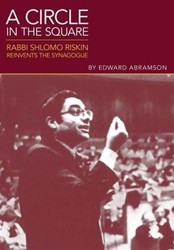This collection of documents dating from the early nineteenth century until the present day presents a diverse and multi-dimensional portrait of how Orthodox Judaism has attempted to respond to the cultural changes and challenges presented by the rapid evolution of Jewish and secular lifestyles in the United States over the course of the last two centuries.
All religions are tasked with making sense out of and engaging with the human condition at the particular times and places in which their adherents find themselves. As opposed to relatively extreme religious approaches that either attempt to isolate themselves from their surroundings or completely incorporate the current trends extent within society, Modern Orthodoxy, like all centrist religious denominations, strives to maintain a balance between tradition and modernity — which, in the eyes of some its critics included in these pages, constitutes a veritable contradiction in terms. The book contains reflections of how Orthodox Judaism has addressed changes in liturgy, the divinity of the Torah, the delineation of various Jewish denominations, aesthetics of places of worship, attitudes towards secular education, women’s ritual and leadership issues, interfaith dialogue, Friday night programming, sexuality and family matters, genetic testing, Zionism, the bat mitzvah celebration for young women, commemorating the Holocaust, Zionism, Soviet Jewry, and addressing the terrible dilemma of helping women whose husbands refuse to grant them a divorce.
The documents contained in Eleff’s book, reflect the ongoing soul-searching and wrenching concerns in which institutions and their leaders have engaged in their attempt to adjust and yet preserve Judaism’s traditions over the years. With the consistent integration of several points of view regarding many of the issues addressed, Modern Orthodox Judaism’s readers are able to appreciate the complexity of these issues and the earnestness of purpose of those grappling with them.
A pattern of ascendency followed by a decline in the relatively broad ideological religious approach categorized as Modern Orthodoxy can be traced specifically in documents from the 1960s to the 1980s. The “winnowing of American Orthodoxy,” as well as significant changes in the movement’s key leadership, is credited by Eleff for the abandonment of previous moderate, centrist positions in favor of a sharper delineation of the left and right wings of the group. Many of the writings in the book’s final chapter reflect attempts on the part of more liberal and progressive elements within the constellation of Modern Orthodoxy, to claim for themselves the mantle of being the true heirs of this particular tradition.
Reflecting on the documents assembled in the book, is that in addition to the natural changes that inevitably affect all cultural settings, one comes away with the distinct impression that the disorientation caused first by immigration from more traditional and even repressive societies to the openness and personal freedom of the United States, followed by the general relocation of Orthodox Jews from urban settings to suburban environments, has played a major role in empowering many to think that past approaches and practices must be altered, independent of the long-standing demands of religious tradition. When such developments are coupled with the light-speed advances in technology and social media, the integrity of Modern Orthodoxy, perhaps more so than Jewish denominations further to the left and right, has been sorely tested. Serious contemplation of the past by reading documents collected in books like Zev Eleff’s, however, is helpful for those identifying with Modern Orthodoxy to at least brace ourselves for what might be yet to come.
Related Content:
Visiting Scribe: Zev Eleff
The New Digital Discourse and Modern Orthodox Judaism
In Whose Image? Maimonides Among the Portraits of the Lawgivers




